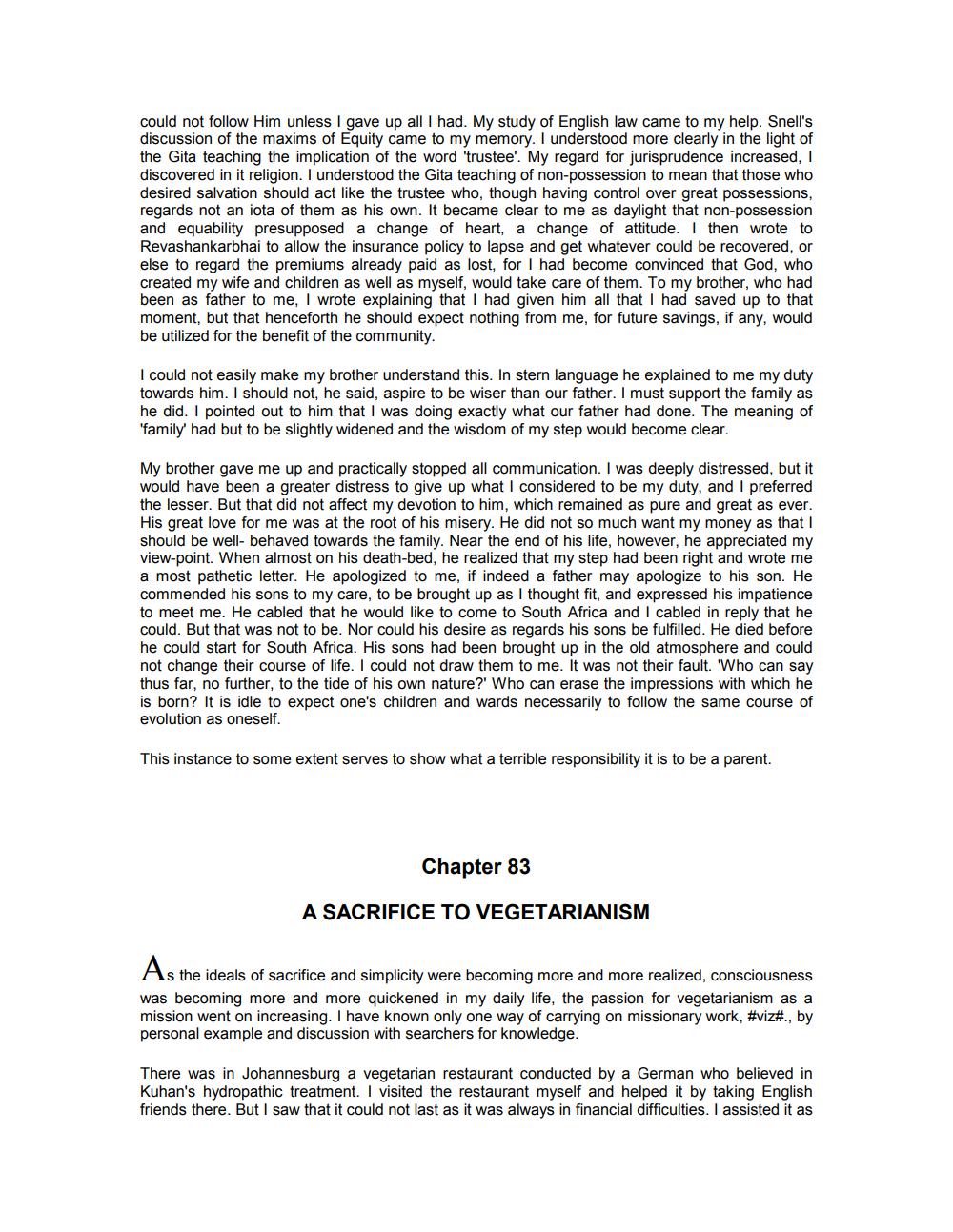________________
could not follow Him unless I gave up all I had. My study of English law came to my help. Snell's discussion of the maxims of Equity came to my memory. I understood more clearly in the light of the Gita teaching the implication of the word 'trusteel. My regard for jurisprudence increased, discovered in it religion. I understood the Gita teaching of non-possession to mean that those who desired salvation should act like the trustee who, though having control over great possessions, regards not an iota of them as his own. It became clear to me as daylight that non-possession and equability presupposed a change of heart, a change of attitude. I then wrote to Revashankarbhai to allow the insurance policy to lapse and get whatever could be recovered, or else to regard the premiums already paid as lost, for I had become convinced that God, who created my wife and children as well as myself, would take care of them. To my brother, who had been as father to me, I wrote explaining that I had given him all that I had saved up to that moment, but that henceforth he should expect nothing from me, for future savings, if any, would be utilized for the benefit of the community.
I could not easily make my brother understand this. In stern language he explained to me my duty towards him. I should not, he said, aspire to be wiser than our father. I must support the family as he did. I pointed out to him that I was doing exactly what our father had done. The meaning of 'family' had but to be slightly widened and the wisdom of my step would become clear.
My brother gave me up and practically stopped all communication. I was deeply distressed, but it would have been a greater distress to give up what I considered to be my duty, and I preferred the lesser. But that did not affect my devotion to him, which remained as pure and great as ever. His great love for me was at the root of his misery. He did not so much want my money as that I should be well-behaved towards the family. Near the end of his life, however, he appreciated my view-point. When almost on his death-bed, he realized that my step had been right and wrote me a most pathetic letter. He apologized to me, if indeed a father may apologize to his son. He commended his sons to my care, to be brought up as I thought fit, and expressed his impatience to meet me. He cabled that he would like to come to South Africa and I cabled in reply that he could. But that was not to be. Nor could his desire as regards his sons be fulfilled. He died before he could start for South Africa. His sons had been brought up in the old atmosphere and could not change their course of life. I could not draw them to me. It was not their fault. 'Who can say thus far, no further, to the tide of his own nature?' Who can erase the impressions with which he is born? It is idle to expect one's children and wards necessarily to follow the same course of evolution as oneself.
This instance to some extent serves to show what a terrible responsibility it is to be a parent.
Chapter 83
A SACRIFICE TO VEGETARIANISM
As the ideals of sacrifice and simplicity were becoming more and more realized, consciousness was becoming more and more quickened in my daily life, the passion for vegetarianism as a mission went on increasing. I have known only one way of carrying on missionary work, #viz#., by personal example and discussion with searchers for knowledge.
There was in Johannesburg a vegetarian restaurant conducted by a German who believed in Kuhan's hydropathic treatment. I visited the restaurant myself and helped it by taking English friends there. But I saw that it could not last as it was always in financial difficulties. I assisted it as




